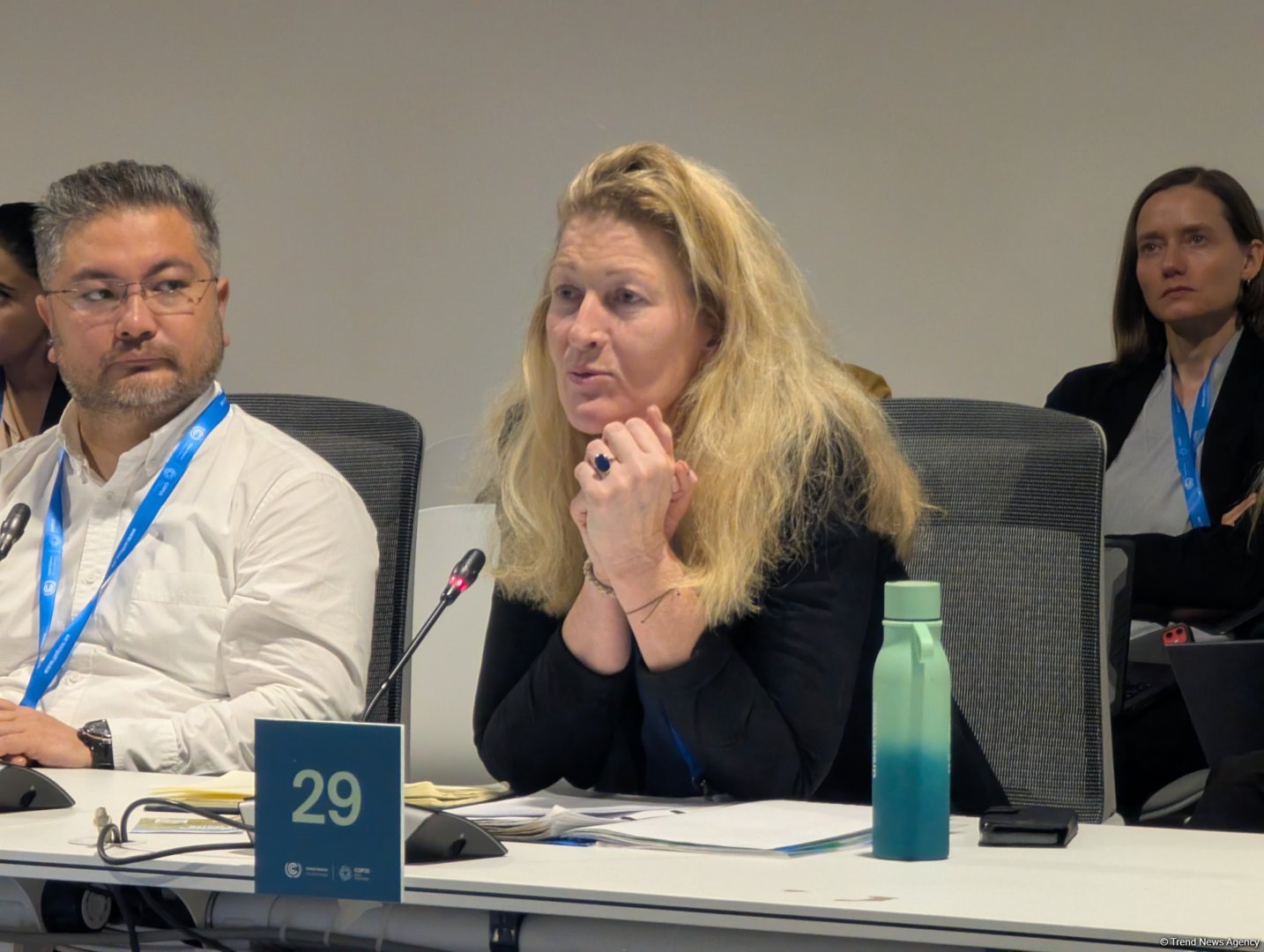BAKU, Azerbaijan, November 21. Failure to address water issues can lead to severe economic consequences, such as a potential global gross domestic product (GDP) loss of 8–15 percent by 2050, Ambassador for Sustainable Development, Director of Inclusive Green Growth Department at the Netherlands Foreign Ministry Wampie Libon said at the COP29 high-level roundtable themed "Water for Climate: Integrating Water Solutions into NDCs and NAPs Biodiversity, Water and Climate Nexus" today, Trend reports.
"To prevent this scenario, we must start viewing water as a global public good and use it more productively. In our view, water should be at the heart of climate policy, and action must be taken collectively.
About 90 percent of countries have already included water-related adaptation measures in their national plans. However, the issue of financing these commitments remains unresolved. This is a key challenge that requires collective efforts from all stakeholders. Fortunately, attention to water issues is growing, and partners are ready to work on solutions.
In the Netherlands, we understand all aspects of water resource management and know how to tackle the challenges that arise. We are ready to cooperate, learn from each other, and work together. We can support attracting investment, building capacity, and sharing knowledge, as this is critically important," she added.
To note, the 29th session of the Conference of the Parties to the UN Framework Convention on Climate Change (COP29), which will run until November 22, opened at the Baku Olympic Stadium on November 11. It is the largest event organized by Azerbaijan to date, and the first time in the region that it is being held in Azerbaijan.
Within COP29, the highest level event - the summit of world leaders on climate action - was held on November 12–13.
The main expectation from COP29 is to agree on a fair and ambitious New Collective Quantitative Goal (NCQG) on climate finance. The COP29 chairmanship has launched 14 initiatives that include linkages between climate action and the Sustainable Development Goals, including green energy corridors, green energy storage, harmony for climate resilience, clean hydrogen, methane reduction in organic waste, action on green digital technologies, and other topics.
In addition to being a top priority that creates the conditions for action, creating climate finance will also help fulfill the 1.5°C pledge by bringing everyone together.
The UN Framework Convention on Climate Change is an agreement signed at the Rio Earth Summit in June 1992 to prevent dangerous human interference in the climate system. The acronym COP (Conference of Parties) stands for “Conference of Parties” and is the highest legislative body overseeing the implementation of the Framework Convention on Climate Change.
A total of 198 countries are parties to the Convention. Unless otherwise decided by the parties, COP is held annually. The first COP event was held in March 1995 in Berlin, and its secretariat is located in Bonn.
Stay up-to-date with more news on Trend News Agency's WhatsApp channel







